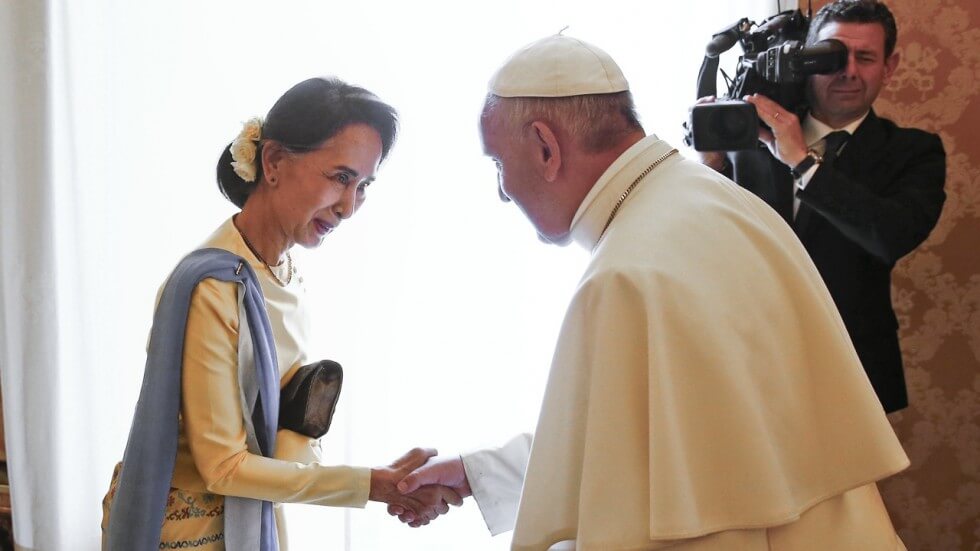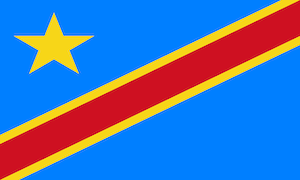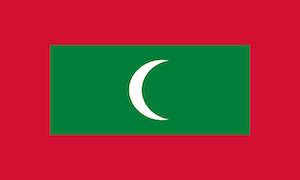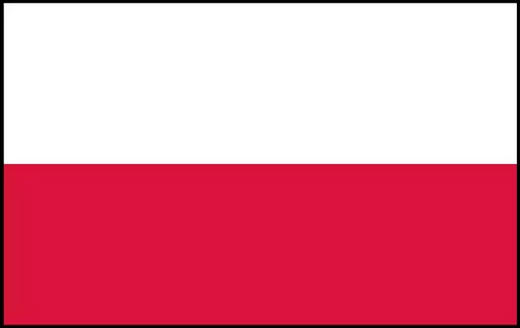December 1, 2017

Photo: Pope Francis with Myanmar’s de facto leader Aung San Suu Kyi in Naypyidaw. While Francis has stressed the importance of “unity in diversity” while meeting leaders of several faiths as well as the army in Burma, he has made no mention of the violent campaign by the Burmese military against the Rohingya Muslims – Credit: AFP

On Sunday, the Democratic Republic of Congo government banned rallies that were planned this week in the capital Kinshasa, over the extended rule of President Joseph Kabila. Both the coalition in favour of Kabila, as well as the opposition coalition had planned a march, to voice support or disagreement with the delayed elections. Despite concern over a crackdown, the head of the opposition coalition, Felix Tshisekedi, said he would not heed the ban. “There’s no question of depriving us of our rights and freedom,” he tweeted according to the Daily Nation. The opposition march was planned for Thursday this week.
Then on Monday, AFP reports that a group of influential bishops in the DRC urged President Joseph Kabila to pledge he will not seek a third term in office in order to ease fears of unrest. The Catholic church plays an important role in the country, as bishops last year already tried to help broker a deal under which elections for a new president would be held in 2017. In a statement, the bishops stated that “It is essential, on the grounds of (demonstrating) sincere political will, to reassure the Congolese people and international partners by providing guarantees that elections will effectively be held.”
On that same day, the Food and Agriculture Organization of the United Nations published their latest DRC-situation report. The report displays the unrest of the last month and the relationship between violence and food-insecurity for millions of Congolese. According to the report, “food insecurity has increased by 30 percent since 2016 due to a lack of access to food, suspended agricultural activities, insufficient food reserves and income, and the fact that previous harvests have been either looted or burnt as a result of the conflict. Between 40 and 60 percent of households were forced to adopt negative coping mechanisms.”
1. Daily Nation
2. News24
3. ReliefWeb

Late on Friday last week, Assad Shareef announced that he is to file a case in Court over the Council’s refusal to investigate RaajjeTV for staging a peaceful protest in MMC media awards night. Shareef, who is a member of Maldives Media Council (MMC), claimed that using the awards ceremony to stage a protest was a direct challenge to other media and journalists. Therefore, Assad argued, the case must be investigated. RaajjeTV staged a silent protest at the Media Council awards in October. Staff of the station held signs displaying sentiments against Maldives Broadcasting Commission (MBC), as to address the unfairness and bias of the Commission in penalizing the station.
On the weekend, Former President Maumoon Abdul Gayoom has expressed his displeasure about the fact that his son, Dhiggaru constituency MP Faris has been in police custody since July, and is yet to be sentenced. In a tweet, the man who ruled the nation for 30 years noted that detaining an innocent, influencing trials and embezzling from state funds, are severe injustices, the latter directed towards the mass corruption allegations against his half-brother’s administration.
On Thursday, Orlando Crowcroft for NewsWeek publishes an extensive analysis of the current situation in the Maldives and the changing image of the Indian Ocean nation. As former President Mohamed “Anni” Nasheed is waging his battle with the government of Abdulla Yameen from London, his campaign has stopped short of calling for an outright boycott of the Maldives’ tourism industry. However, the former president has called for targeted sanctions against the new regime in Malé. In response, the government has gone on a charm offensive. About Nasheed’s combined battle for democracy and environmental justice for the Maldives.
1. Raajje
2. Raajje
3. Newsweek

On Friday, Emmerson Mnangagwa is sworn in as the new President of Zimbabwe. The former Vice-President will remain head of Zimbabwe until the next elections, for which a date has not yet been set. Analysts do not predict a radically different Zimbabwe now Mnangagwa is in charge. He has been named a ‘ghost of Mugabe’, with similar affiliation to the ruling party and a big influence on the Zimbabwean army, as a former liberation-fighter and then Defence Minster. During his inauguration-ceremony, Mnangagwa mentioned his intentions to fight corruption, and kick-start the economy, with a focus on youth and agriculture. Mnangagwa also referred to the current stance of politics, to which he himself has, one would say, strongly contributed. “We must appreciate the fact that over the years, our domestic politics have become poisoned and rancorous and polarizing. We dare not squander the moment,” according to Zimbabwe’s new President. However, when Mnangagwa announced his new cabinet on Thursday, many were very dissapointed.
On Sunday, several media reported on the deal that was negotiated by the Mugabe’s before Robert’s resignation last week. The ousted president and his wife will receive a “golden handshake” worth not less than $10 million. Furthermore, both Grace and Robert Mugabe would be getting immunity from prosecution. The salary of the 93-year-old former president will also be paid until his death, the Guardian reports. That same report adds that, instead of going into exile, Mugabe’s negotiators managed to strike a deal with the generals that enables him to rather enjoy his retirement in Zimbabwe with all his benefits. Opposition politicians have criticized the deal, stating that even when the ruling party and the army make a deal with the ousted President, this does not mean that he cannot be prosecuted for his actions while in government.
Early on Wednesday, Pastor Evan Mawarire was acquitted on charges of trying to overthrow Robert Mugabe’s former government. As the case was widely seen as a test of judicial independence after the forced resignation of Mr Mugabe last week, the High Court in Harare ruled there was no evidence that he had “urged a violent removal of government”. The case had dragged on since Mawarire’s arrest on February first of this year. According to the BBC, “some Zimbabweans will see his acquittal as a symbolic victory, coming just after Mr Mugabe’s resignation and the inauguration of his former deputy, Emmerson Mnangagwa, as president.”
1. Financial Times

Last week on Friday, the Syrian opposition selected a new chief negotiator to head a unified delegation to peace talks with the Syrian government in Geneva this week, Reuters reported. Nasr Hariri said the opposition was going to Geneva on November 28 to hold direct talks and was ready to discuss “everything on the negotiating table”. Hariri replaces hardliner Riyad Hijab, who abruptly quit this week, hinting that the High Negotiations Committee under him had faced pressures to make concessions that favoured Assad. Opposition groups in Riyadh maintained the position that President Assad has no role in a transitional period under a U.N.-sponsored peace deal.
On Sunday, at least 23 people were killed in government shelling and airstrikes on a rebel-held enclave outside the capital Damascus, Agence France-Presse reported. More than 100 people have been killed by airstrikes and shelling on the Eastern Ghouta suburbs since pro-government forces, backed by Russian warplanes, launched an offensive nearly two weeks ago to reclaim one of the last rebel strongholds near the capital, the United Kingdom-based Syrian Observatory for Human Rights (SOHR) said. According to Newsdeeply, separate Russian airstrikes on the eastern province of Deir Ezzor, targeting Islamic State killed another 34 people, including 15 children.
Starting from Tuesday, peace-talks in Geneva were held, as the government and opposition would have a chance to negotiate directly for the first time. After a delay that was allegedly caused by the opposition’s insistence that Assad step down, which he has refused to do, the government-delegation finally made it to Geneva on Wednesday. ABC-news reports that, despite the fact that much has changed in Syria since the last peace-talks this summer, there is little optimism that the current round would achieve any significant breakthroughs. According to a European diplomat close to the negotiations, a real dialogue between the two sides on these two matters would already represent a “significant step forward,” considering Geneva’s past record for deadlock.
1. Reuters
2. NewsDeeply.com
3. ABC-News

As Venezuelan President Nicolás Maduro has named Major General Manuel Quevedo as the new head of state oil company PDVSA and the country’s energy ministry on Monday, analysts expect that the military will be given more leading posts in the countries oil sector. The appointment of the army General comes as a surprise, as Maduro claims his main reason for the appointment was the fight against corruption. After executives of Citgo, the oil company’s US refining subsidiary, were arrested over corruption allegations last week, the move by Maduro seems to be the next chapter in his polarizing tactics. According to VOA, sources within PDVSA and the oil industry said Maduro’s administration was using corruption allegations to side-line rivals and deepen its control of the industry, which accounts for over 90 percent of export revenue.
On Tuesday, online magazine the Wire publishes an in-depth article about Venezuela’s digital news upstarts and their “sense of energy and urgency […] to provide accurate, independent coverage of the turmoil engulfing the country.” With the credibility of the country’s traditional media completely shattered since 2014 by government censorship and punishing economic policies, several digital outlets now provide new sources for new audiences. Read everything about the strategies and goals of these platforms in this incredible piece by Diego Marcano.
On Wednesday, two rights groups brought out a combined report, in which the Venezuelan government is accused of “systematically” abusing anti-government protesters this year. In a joint report, New York-based Human Rights Watch and Venezuela-based Penal Forum documented 88 cases between April and September, from excessive use of force during marches to protest against arbitrary detentions. Presenting the 62-page report, “Crackdown on Dissent: Brutality, Torture, and Political Persecution in Venezuela,” on their website, HRW claimed that “while it was not the first crackdown on dissent under Maduro, the scope and severity of the repression in 2017 reached levels unseen in Venezuela in recent memory.”
1. VoaNews
2. The Wire
3. Human Rights Watch

Thousands of Catholics welcomed Pope Francis when he starts his three-day-visit to Myanmar on Monday. According to the Guardian, the head of the Catholic church faces a difficult diplomatic balancing act on his first papal visit to Myanmar. Even mentioning the word “Rohingya” would allegedly set off a firestorm in the Buddhist-majority country, where the military and government revile the minority group, preferring to call them “Bengalis”, which suggests they are immigrants. The pope has already spoken about the Rohingya in two appeals from the Vatican this year, calling them “our Rohingya brothers and sisters”. Francis met with the country’s de facto leader, Aung San Suu Kyi, and commander-in-chief, Min Aung Hlaing on Wednesday, but strategically avoided mentioning the Rohingya.
On Tuesday, Human Rights Watch reports that while Pope Francis has stressed the importance of “unity in diversity” while meeting leaders of several faiths as well as the army in Burma, he has so far made no mention of the violent campaign by the Burmese military against the Rohingya Muslims. Myanmar’s powerful army chief told Pope Francis there is “no religious discrimination” in Myanmar. Meanwhile, Bangladesh threatens to move 600,000+ Rohingya to Bhasanchar, a remote island in the Bay of Bengal, “if they do not leave the country shortly.”
Also this week, the South China Morning Post reports on Aung San Suu Kyi being stripped of her Freedom of Oxford honour for ‘turning a blind eye’ to the Rohingya crisis. According to the SCMP, “Oxford city council voted unanimously to permanently remove the honour given to the de facto leader of Myanmar in 1997”, and said it did not want to celebrate “those who turn a blind eye to violence”. Only five years ago, Suu Kyi was celebrated with an honorary doctorate from Oxford, and held her 67th birthday party at St Hugh’s college, where she studied politics, philosophy and economics in the 1960s.
1. The Guardian
2. Human Rights Watch
3. SCMP

A new chapter in the era of ‘fake news’ this week in the USA. Project Veritas, an organization that uses fake stories, and secret recordings to try and discredit news-outlets, allegedly tried to set up the Washington Post. The organization, run by James O’Keefe, had one of its colleagues reach out to the Post with a made-up account on sexual misconduct by the Republican nominee for Senate in Alabama, Roy Moore. The hope within Project Veritas seems to have been that the Post would reveal anti-Moore bias and perhaps eventually publish the lie. When the account would turn out to be fake, this would firmly discredit the Washington Post, and boost Moore’s campaign. More disturbing, finally, is that another apparent goal has been to discredit another woman who previously spoke with the Post about real alleged sexual misconduct by Moore. However, thanks to thorough fact-checking by the Post, Veritas’ operation got discovered and exposed. In a reaction, O’Keefe wrote: “This is how undercover work goes. This isn’t the first time that has happened, and it won’t be the last time.”
On Thursday, Donald Trump told Prime Minister Theresa May to focus on “terrorism” in the UK after she criticised his sharing of far-right videos. After the US president had retweeted three inflammatory videos posted online by a British far-right group, reactions from all over the world were triggered. As one of the retweeted videos purportedly shows a “Muslim migrant” attacking a young Dutch man on crutches, the Dutch embassy in Washington DC answered by tweeting: “Facts do matter. The perpetrator of the violent act in this video was born and raised in the Netherlands. He received and completed his sentence under Dutch law.”
1. CNN
2. BBC

After the dissolvement of Cambodia’s main opposition party earlier this month, an NGO founded by Cambodia’s jailed opposition leader Kem Sokha is set to become the latest casualty of Prime Minister Hun Sen’s ongoing campaign to crush critical voices in his country, Voice of America reports on Monday. Sokha founded the Cambodian Center for Human Rights (CCHR) in 2002, but the organization is now forced to close its doors, because it is claimed to be a front for sinister foreign meddling. Prime Minister Hun Sen stated that “in fact, the Cambodian Center for Human Rights should be shut down because it follows order from foreigners. It is because foreigners created it, not Khmer.” For more about the spreading crackdown in Cambodia, read the full VOA-article.
Which role has the international community played in the current collapse of Cambodia’s democracy? In the days and weeks following the Supreme Court decision to dissolve the Cambodia National Rescue Party, international condemnation was poured out over the CPP-regime. In their turn, CPP-party officials defended themselves stating that “democracy and human rights in the neighbourhood are … incomparable with Cambodia,” and “no country in the Greater Mekong Subregion has a better democratic regime than Cambodia.” Although their argumentation comes very close to a fallacy, there might be some truth in it. As Andrew Nachemson, writing for the Phnom Penh Post, claims; “Indeed, with a military junta in charge in neighbouring Thailand to the west, and repressive communist regimes in power in Vietnam and Laos to the east and north – not to mention a troubled, corrupt regime in Malaysia, a sultanate in Brunei and a so-called benevolent dictatorship in Singapore – Cambodia’s comparatively liberal democratic Constitution sticks out like a sore thumb.” Was the attempt to shoehorn democracy into Cambodia by the UN naïve?
1. VOA-News
2. Phnom Penh Post

On the weekend, mocked-up pictures of opposition politicians allegedly hanging on gallows were unfurled at a far-right demonstration in Katowice, near Krakow. Members of the far-right movement ONR brought the gallows to their rally, figuratively hanging-up the pictures of six Members of European Parliament from the Civic Platform (PO) opposition party. These politicians voted in favour of a resolution adopted on 15 November by the European Parliament denouncing judicial reforms in Poland as a threat to the fundamental values of the European Union. After that vote, the six were accused by the ruling conservatives of acting “against their country”. Poland’s Minister of Justice announced an investigation into the protest. According to the NY-Times, Justice Minister Zbigniew Ziobro, said in an interview with a private radio station that the demonstration was unacceptable, but also blamed opposition parties for the escalation of tensions.
Also on Monday, the Polish authorities were looking into an act of vandalism against a Muslim cultural centre in capital Warsaw. Stones were thrown at the centre by unidentified people, smashing about a dozen windows. “I am 100 percent sure this was a racist, anti-Muslim attack,” Muslim community leader Youssef Chadid told several news platforms. According to the Imam, these acts of hatred and xenophobia are being reported more frequently in Poland since the Law and Justice party came to power two years ago. The government promotes Catholicism and refuses to take in non-Christian refugees as part of an EU relocation plan, citing security concerns, says ABC News.
1. New York Times
2. ABC-News
Spain – On Tuesday, several pro-independence parties presented their election campaigns, while more than a few of their candidates remain either in prison awaiting trial, or in exile in Belgium – CatalanNews
Uzbekistan – Where Uzbekistan was one of the world’s most isolated states, it is slowly opening up since the death last year of former president Islam Karimov, Reuters reports. Where Karimov kept an iron grip on the economy and politics and mistrusted both Russia and the West, his successor Shavkat Mirziyoyev, started tentative reforms to an economy that had failed to create jobs, fuelling discontent. Nevertheless, Mirziyoyev has maintained a strong top-down political system – Reuters
Romania – Thousands took to the streets on Sunday all over Romania, protesting a government draft law which is criticized for possibly putting the judicial system under political control – EuroNews
Australia – After CANVAS reported on different protests methods being used in the struggle for the evacuation of the immigration detention centre on Manus Island three weeks ago, five activists chained themselves by the neck to the Prime Minister’s Sydney residence to push for the evacuation of the Manus and the Nauru offshore processing centre in a new act of protest this week – The Guardian
Vietnam – A Vietnamese court has upheld a 10-year jail sentence for a prominent blogger convicted of publishing propaganda against the state – Reuters and HRW
Honduras – As the political limbo continues, Honduras moved into a fifth day of presidential vote count on Friday, which has sparked unrest amid opposition accusations of electoral fraud. The process will likely to take up to two more days before yielding a winner – Reuters
CANVAS’ Daily News
Also read what we featured in our daily news section this week:
1. Thousands in the streets on Sunday – Romanian protests continued!
2. Lessons from radical, political art in Russia: Pussy Riot, Pyotr Pavlensky and Co.